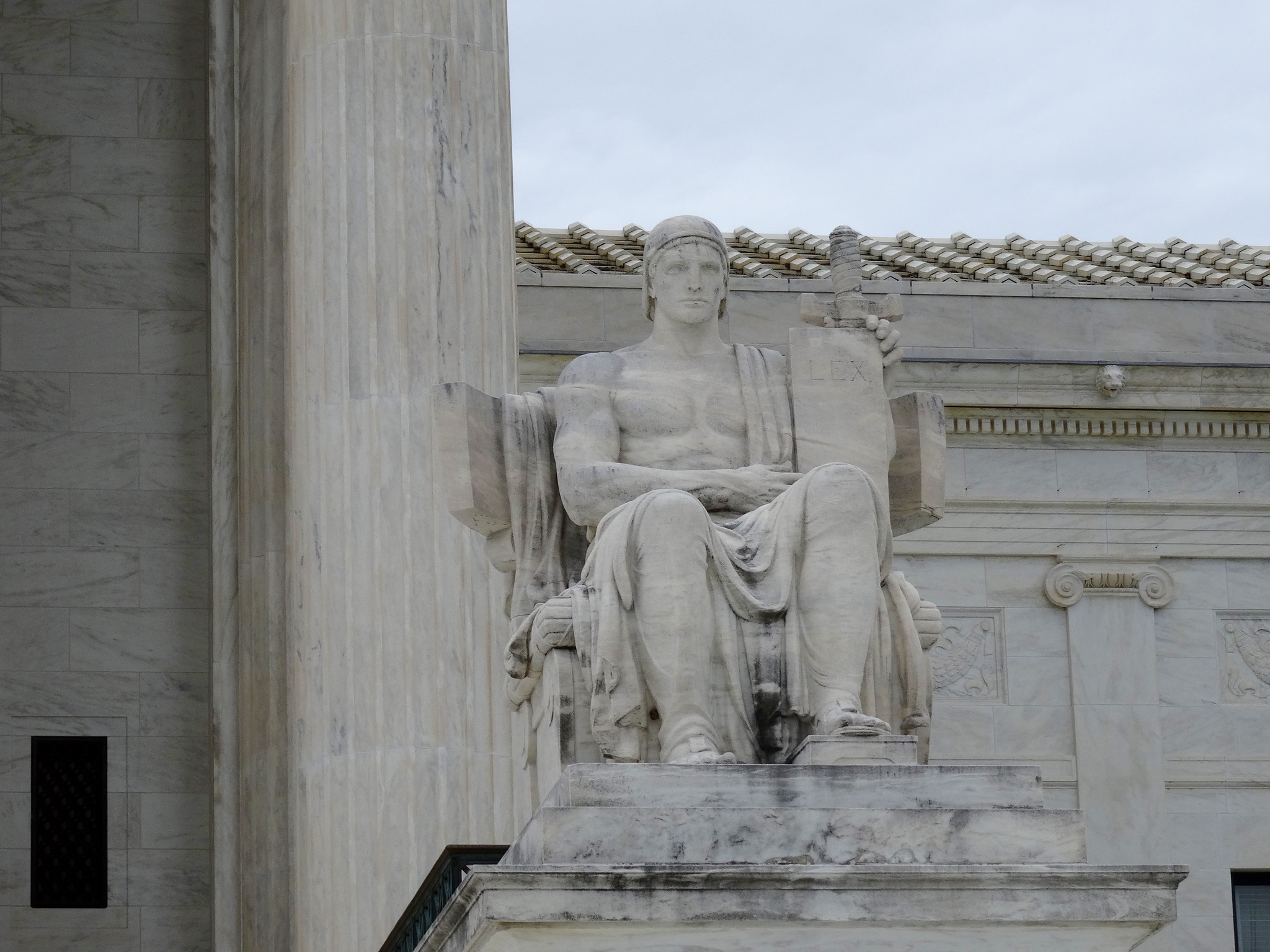OPINION ANALYSIS
Supreme Court rejects “Trump too small” trademark

on Jun 13, 2024 at 6:35 pm

The court on Thursday unanimously rejected an attempt to force the Patent and Trademark Office to accept the registration “Trump too small” as a trademark for T-shirts mocking the former president. Steve Elster had argued that the provision of the Lanham Act that directs the PTO to refuse to register any mark that identifies “a particular living individual” violated his First Amendment rights. Although the justices splintered sharply on their reasoning, all agreed that the First Amendment permits the PTO to refuse to register the mark.
All nine justices agreed on the basic framework of analysis, which appears early in the principal opinion, written by Justice Clarence Thomas. Writing in that part of his opinion for six justices (all but Justices Elena Kagan, Sonia Sotomayor, and Ketanji Brown Jackson), Thomas explained that the restriction is viewpoint-neutral but not content-neutral. As he observed, the justices “have twice concluded that trademark restrictions that discriminate based on viewpoint violate the First Amendment.” The earlier restrictions were viewpoint based because they “prohibited trademarks based only on one viewpoint, while permitting trademarks based on other viewpoints.” The ban here, by contrast, is viewpoint neutral – Thomas pointed to the PTO’s refusal of trademarks such as “Welcome President Biden,” “I Stump for Trump,” and “Obama Pajama” – rejections that doubtless disappointed a broad range of political viewpoints. Having said that, Thomas explained that the restriction still is content-based, because it implements a ban based on the content of the trademark: “The names clause turns on the content of the proposed trademark — whether it contains a person’s name. If the trademark does contain a person’s name, and the registrant lacks that person’s consent, then the names clause prohibits registration.”
Acknowledging that the justices in Vidal v. Elster were “for the first time” considering “the constitutionality of a content-based – but viewpoint-neutral – trademark registration,” Thomas turned to offering his reasons for approving the statute. Specifically, Thomas rested his decision on an account of the “history and tradition” of content-based trademark restrictions, a discussion that generally showed a long tradition of preventing any individual from using a trademark to prevent others from using their own names to identify goods in commerce. For Thomas, that discussion was enough to establish that the “names clause has deep roots in our legal tradition.” Accordingly, he concluded, “the names clause is of a piece with a common-law tradition regarding the trademarking of names,” and therefore “[w]e see no reason to disturb this longstanding tradition, which supports the restriction of the use of another’s name in a trademark.”
The separate opinions show much less devotion to the historical approach. First, Justice Brett Kavanaugh and Chief Justice John Roberts joined most of Thomas’s opinion, but Kavanaugh wrote a brief concurrence explaining that the two of them were open to the possibility that “a viewpoint-neutral, content-based trademark restriction might well be constitutional even absent such historical pedigree.”
Second, and more pointedly, Justice Amy Coney Barrett (joined in large part by Sotomayor, Kagan, and Jackson) wrote to explain her position that it was “wrong twice over” to argue that “history and tradition” alone can “settle the constitutionality of the names clause.” Her first point is that the majority’s history was wrong: “[T]he Court’s evidence [drawn from] loosely related cases … does not establish a historical analogue for the names clause.” Her second point was that the majority was wrong to rely exclusively on history. She faulted the majority for its failure to “explain[ ] why hunting for historical forebears is the right way to analyze the constitutional question.” Barrett preferred instead to adopt a doctrinal First Amendment rule “reflect[ing] the relationship between content-based trademark registration restrictions and free speech.” Specifically, Barrett’s test would permit any restrictions that “are reasonable in light of the trademark system’s purpose of facilitating source identification.” As applied to the names clause at issue, Barrett reasoned that Congress’s general determination about the use of names in trademarks was a ”categorical judgment[ ]” that “Congress is entitled to make …, particularly where heightened scrutiny does not apply.”
The most critical of the separate opinions came from Sotomayor, joined by Kagan and Jackson. She started with a stern criticism of the majority’s historical approach, characterizing Thomas’s selection of the authorities that he discusses “as the equivalent of entering a crowded cocktail party and looking over everyone’s heads to find your friends.” Sotomayor pointed to the confusion lower courts have had applying the similar analysis Thomas offered in New York State Rifle & Pistol Association v. Bruen.
On the merits, Sotomayor found the names clause permissible because it simply conditions a government benefit (trademark registration) on the content of the speech. She explains that registration “only confers additional benefits on trademark holders,” and that refusal to register does nothing to prevent Elster from speaking or selling objects including the mark. Accordingly, she found the provision well within the court’s First Amendment precedents.
It was clear from the briefing and argument that this case would divide the justices, as earlier cases considering the relationship between the First Amendment and trademark law have done. My guess is that it will not be long before we see yet another challenge to another provision of the Lanham Act, and that the justices will be just as divided then as they were Thursday.


